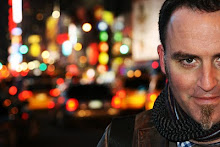I read the terrible story yesterday that Eurovision winner, Conchita Wurst, has been forced to publicly reveal her HIV status as a result of a former partner threatening her with blackmail. It is a story which makes me feel incredibly angry. The fact that we still live in a world where an HIV positive person can be blackmailed makes me sick to my stomach. Can you imagine the outrage people would feel if someone with cancer was forced to out themselves because a wounded ex felt like earning a bit of Judas money?
When are we going to get a grip on the facts of HIV? Undetectable now means untransmittable. If someone is on effective HIV medication, the illness cannot affect them and they are physically unable to pass it on to someone else. As such, someone’s HIV status is not something which anyone else has the right or need to know. It is every HIV positive person’s right to declare themselves positive when or IF they feel ready.
What further horrified me, however, was the Terrence Higgins Trust’s Facebook page, which reported the story but was instantly hijacked by a load of trolls using emoticons of people vomiting and someone writing “Conchita: more like Godzilla,” which was so random, it wasn’t even worth an angry reply.
The thing which really bothered me, was the response of a trans man, who felt the need to ignore the sickening tragedy of the story, and, instead of showing compassion, chose to use the story as a platform for his own beef against what he perceives as a transphobic world. His issue, it seems, was with the Terrence Higgins Trust using feminine pronouns in relation to Conchita. Because Conchita Wurst identifies as a gay man when she’s not in drag, using “she” to describe “her” is apparently offensive (there’s that word again.)
Okay. Stop! Just stop with the assumption that the world is transphobic, and, furthermore, have a bit of sensitivity towards other people in this world who are suffering pain.
Point one: choose your moments and choose your targets. The Terrence Higgins Trust is a hugely well-respected organisation within the LGBT community, who entirely understand the plight of trans-people and have been working with the LGBT community for many, many years. To assume an organisation like that would wittingly or unwittingly slight the trans community is utterly preposterous.
Point two: Conchita Wurst uses the female pronoun to describe herself when she is in her drag persona. The man behind the character, Thomas Neuwirth, would use male pronouns to describe himself when he’s not in drag. If we’re to respect everyone’s right to choose the pronouns they think best describe themselves, then we have to accept Neuwirth’s wish to be referred to as a she when he’s dressed as Conchita.
Point three: there is an ancient tradition of drag and female impersonation in the world which must not be undermined or swept aside as a result of modern-day sensitivities about gender. Even Ru Paul, the world’s most famous drag queen, has caved into pressure to change his Drag Race show because words like “shemail” are suddenly deemed offensive.
Point Four: Please remember that gay rights would not have happened without drag queens. Drag queens were on the front row during the Stonewall Riots. They fought in their high heels. To do drag is one of the bravest things it’s possible to do. Conchita’s win at Eurovision was deeply significant to the LGBT community and I will not stand by and watch drag queens being described as the enemy.
I’ve heard it said quite a lot recently that the trans movement is where the gay movement was in the 1980s, and I have a great deal of sympathy with this particular analogy. What I would say, however, is that, certainly in the UK, transpeople now have the law on their side. We live in an era where we know it is unacceptable to express transphobia and those who do can and should be punished. This doesn’t, of course, stop it from happening, and God knows it’s not easy to be trans, but in the 1980s, gay men were viewed as utterly toxic. Not only was the community dealing with HIV, and the absolute decimation of its people, but it was living in an era of state-sponsored homophobia. With Clause 28 gripping education, no marriage or pension rights, instant dismissal from the army and institutionalised homophobia in the press and the police, the LGBT community back then had to pick their battles because to stand up against homophobia often meant losing ones job, ones status or being outed by the press.
Successive governments were extremely slow to respond to our lobby, so, to change these draconian anti-gay laws, we were forced to win the hearts and minds of the UK public. We reached full equality by showing people that they couldn’t pigeon hole gay men, that we didn’t always conform to the stereotypes which scared people. That we weren’t scary at all. And it was a long fight.
Sometimes I wish people would take a breath, realise how lucky we all are to live in the West, and only pick the fights which feel genuine and significant. Trolling around on the internet for perceived slights will only serve to alienate your allies. A great deal has changed in the last few years. It takes a while for people to catch up and you cannot whip someone into open-mindedness.
Thank you for reading.
Tuesday 17 April 2018
Subscribe to:
Post Comments (Atom)

No comments:
Post a Comment
Note: only a member of this blog may post a comment.